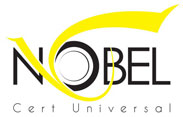The ISO 9000:2015 and ISO 9001:2015 standards are based on seven quality management principles that senior management can apply for organizational improvement:
-
- Customer focus
-
- Understand the needs of existing and future customers
- Align organizational objectives with customer needs and expectations
- Meet customer requirements
- Measure customer satisfaction
- Manage customer relationships
- Aim to exceed customer expectations
-
- Leadership
-
- Establish a vision and direction for the organization
- Set challenging goals
- Model organizational values
- Establish trust
- Equip and empower employees
- Recognize employee contributions
-
- Engagement of people
-
- Ensure that people’s abilities are used and valued
- Make people accountable
- Enable participation in continual improvement
- Evaluate individual performance
- Enable learning and knowledge sharing
- Enable open discussion of problems and constraints
-
- Process approach
-
- Manage activities as processes
- Measure the capability of activities
- Identify linkages between activities
- Prioritize improvement opportunities
- Deploy resources effectively
-
- Improvement
-
- Improve organizational performance and capabilities
- Align improvement activities
- Empower people to make improvements
- Measure improvement consistently
- Celebrate improvements
-
- Evidence-based decision making
-
- Ensure the accessibility of accurate and reliable data
- Use appropriate methods to analyze data
- Make decisions based on analysis
- Balance data analysis with practical experience
-
- Relationship management
- Identify and select suppliers to manage costs, optimize resources, and create value
- Establish relationships considering both the short and long term
- Share expertise, resources, information, and plans with partners
- Collaborate on improvement and development activities
- Recognize supplier successes
- Customer focus
